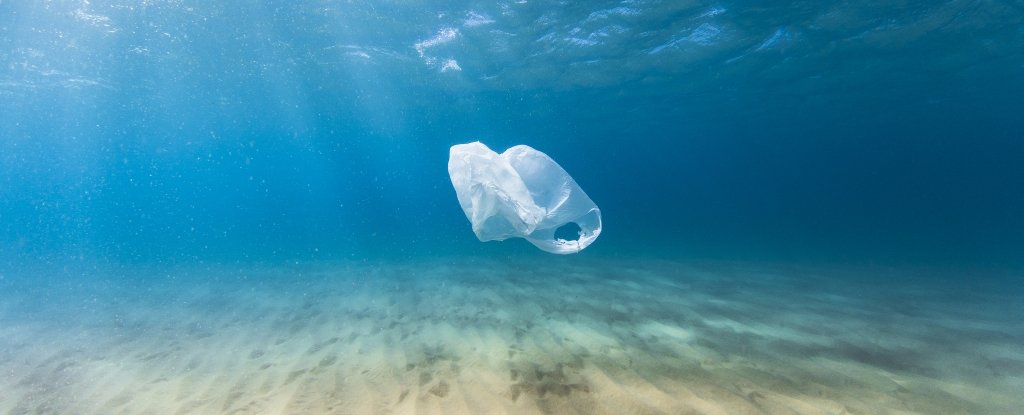EU Parliament Vote to Ban Single-Use Plastic Is A Victory for Oceans
Elf
In a landmark vote, the European Union Parliament voted for a complete ban on single-use plastic goods to stop ocean pollution.
Photo by Justin Hofman / Wildlife Photographer of the Year
With a 571-33 majority vote, the bill introduced by Frédérique Ries, passed with overwhelming approval and initiates a ban on single-use plastic goods ranging from cutlery and plates to straws, cotton buds, drink stirrers and balloon sticks. The ban also extends to a reduction in single-use plastic cups and food containers. The goal is to have the new legislation in effect throughout the European Union by 2021. The ruling will also effect the UK before the end of the Brexit transition. Additional plastic ban measures are already being incorporated in the UK and several EU countries.
Public concerns about ocean pollution have been growing, where the amount of plastic will outnumber fish, if plastic pollution continues at the same rate happening today. As much as eight million tons of plastic end up in oceans annually. More than 80 percent of all pollution in oceans comes from plastics.
After David Attenborough's BBC Blue Planet series aired, public support for plastic bans surged, leading to the proposed EU legislation in May of this year.
Plastics That are Banned
The new legislation targets common single-use plastic products that have been literally oceans for decades now and are also responsible for injuring ocean wildlife. Plastics spread quickly by traveling on ocean currents. While the plastics to be banned account for 150,000 tonnes of plastic annually in European waters alone, only a small fraction of the eight million tons of plastic entering ocean waters worldwide, the step is still significant as it prevents further pollution and encourages societal change. These ten common plastic objects account for 70 percent of plastic pollution entering European waters.
Image via EU Commission
Banned items ranging from cotton buds to plastic straws and cutlery are also easily replaceable via cardboard containers, paper straws and reusable metal cutlery. Environmental damage caused by plastic pollution in Europe is estimated to cost 22 billion euros by 2030.
Image via BBC
Effects on Marine Life
Plastic in the ocean has a serious deleterious effect on marine life, killing fish and large aquatic mammals. Whales often eat plastic bags and are then unable to eat real food and thus die of suffocation and starvation.
Plastic breaks down in the water into smaller pieces or micro plastic and never completes decomposes. Instead, these micro fragments end up in fish and are consumed by other marine mammals, land mammals and human beings. The phenomenon of plastic pollution is widespread. Large amounts of plastic waste also wash up on beaches, where sea birds, turtles and other animals chew them and often die from poisoning and suffocation.
Starfish specimen
Deep Sea Creatures Ingest Plastic For Over 40 Years
New research by the Scottish Association for Marine Science (SAMS) in Oban published in Environmental Pollution, has led to the discovery of plastics such as polyester and nylon in the bodies of deep sea creatures for at least 40 years. Researchers examined animal specimens collected underwater at a depth of 6,561 feet or 2,000 meters in the Rockall Trough off the Western Isles in the northeast Atlantic Ocean. They found eight different types of plastic in over 48 percent of starfish, sea stars and brittle stars collected from 1976 to 2015.
The UK Plastics Pact (WRAP)
More than 40 companies have signed up a pact called the UK Plastics Pact by the sustainability group WRAP to eliminate single-use packaging via better design and manage the entire plastics value chain from supply to design, distribution, consumption and recycling to prevent plastic waste and pollution. The goal is to cut down plastic pollution drastically within the next seven years. Companies who have signed the pact include Coca-Cola and Asda as well as trade associations and branches of government. Together, these companies account for as much as 80 percent of all plastic packaging in UK supermarkets.
Consumer goods providers Procter & Gamble and Marks & Spencer, among others, have agreed to make all plastic packaging recyclable or compostable by 2025.
Promises made to reduce plastic pollution include:
Eliminating difficult or unnecessary single use plastic packaging through better design
Making 100% of plastic packaging reusable or recyclable or compostable
Ensuring 30% of plastic packaging is recyclable material
WRAP’s initiative is supported by the Ellen MacArthur Foundation, an organization that discovered that 95 percent of all plastic packaging is used only once.|
Single-use plastic is banned in several cities and areas of the world now.
The city of Coral Gables where our HQ is located, has already banned the use of single-use plastic bags. We’ve also taken some measures at Elf and will continue to improve as we learn. We welcome your comments and ideas. Thanks for reading!







